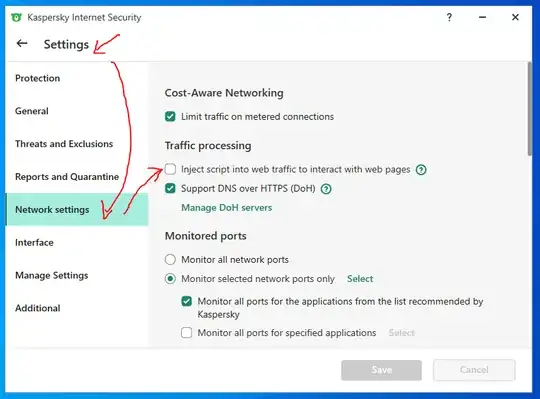As a quick workaround you can just disable that host in hosts file.
Put
127.0.0.1 gc.kis.scr.kaspersky-labs.com
to
C:\Windows\System32\drivers\etc\hosts
You will need admin rights and maybe notepad++ to edit this file.
How it works
Kaspersky AV seem to transparent proxy the traffic. If they do that on https pages too this means that Kaspersky AV have also installed root certificate to your system.
By putting the line to hosts you are blocking the connection to that hosts, so JS file is not loading (but the code would still be on that page).
I am not familiar with Kaspersky AV options, but if there is no option in settings you'd better don't fight with software that you installed yourself on your pc. If you don't like it - change it, otherwise accept it.
Because even if you remove root certificate - the software would install it again. And I don't know the way how you can block transparent proxy if there is no such option in settings.
Also another tips:
- Check browser proxy settings maybe it's not transparent proxy, but
a usual proxy setting and you can just change browser settings
- Check browser for plugins, maybe you can just disable Kaspersky AV plugins if there are any
I personally prefer old antivirus versions (with newest database updates of course), because they do only what they should do and nothing more. They are not uploading "suspicious" files to their servers and not injecting anything.
Also I recommend anyone to buy only "AntiVirus", but not "InternetSecurity" or something like that, because that things cost a lot, don't work, slows your browser, and sometimes do some really suspicious things.
